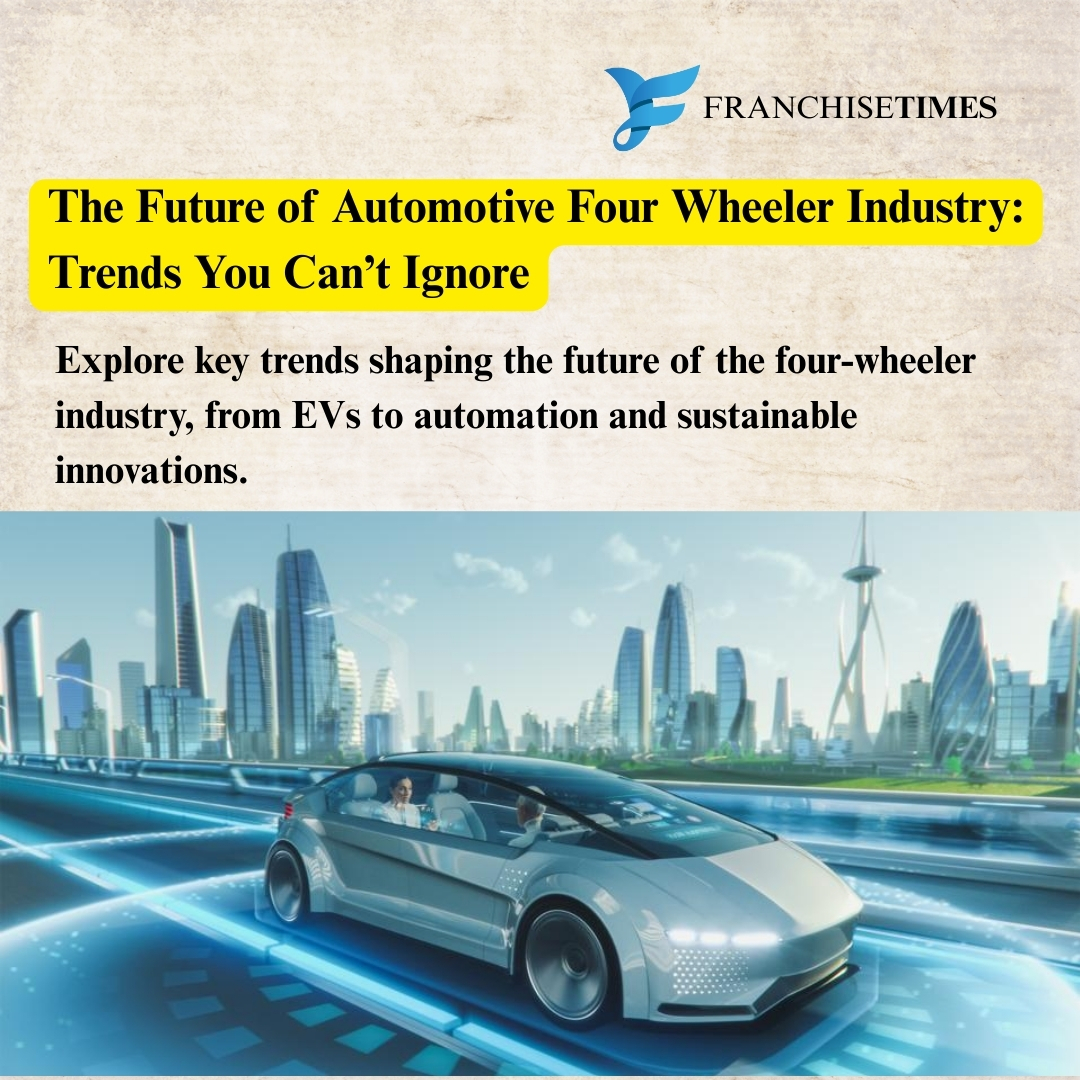The Future of Automotive Four Wheeler Industry: Trends You Can’t Ignore
The automotive four wheeler industry is evolving at an unprecedented pace. Driven by technological innovation, sustainability demands, and changing consumer behavior, the landscape of four wheeler vehicles is no longer what it used to be. From electric cars to AI-enabled smart features, the sector is in the middle of a revolution. This transformation presents both opportunities and challenges for manufacturers, dealers, investors, and marketers alike.

The Electric Revolution: Mainstreaming EVs
One of the most significant trends in the Future Automotive Industry Trends segment is the rise of electric vehicles (EVs). Once considered premium or niche, EVs are now becoming mainstream. Leading automobile brands are launching electric hatchbacks, sedans, and SUVs to meet rising consumer interest. The combination of government subsidies, rising fuel costs, and increased awareness of climate change is driving this growth. According to industry forecasts, the Indian EV market is expected to grow at a CAGR of 49% between 2022 and 2030. In such a scenario, businesses in the automotive four wheeler sector must adapt quickly by including EVs in their inventory, educating consumers about benefits, and offering charging infrastructure partnerships where possible.
Smart Cars and Connected Experiences
Another disruptive force in the automotive four wheeler industry is the integration of smart technology. Today’s four wheelers are not just about engine performance—they’re about connectivity, convenience, and intelligence. Customers expect smart infotainment systems, GPS integration, voice-controlled dashboards, smartphone syncing, and real-time diagnostics. The automotive four wheeler sector is heavily investing in connected vehicle technology to meet this demand. Manufacturers are embedding IoT (Internet of Things) systems that allow cars to communicate with the cloud, offer predictive maintenance alerts, and enhance the user experience. These features are especially attractive to younger, tech-savvy buyers who prioritize convenience and control.
Sustainability is no longer a marketing trend—it’s a business imperative. The automotive four wheeler industry is shifting from conventional practices to green manufacturing processes. Automakers are now focused on reducing carbon emissions not just in their vehicles but throughout their supply chains. The use of recycled materials, energy-efficient production methods, and low-emission logistics is becoming the new normal. Consumers, particularly millennials and Gen Z, are more likely to choose a vehicle or brand that aligns with their environmental values. Companies that ignore this aspect risk losing market share in an increasingly eco-conscious environment.
Driving Sales in the Digital Age
Digital transformation is also playing a key role in how four wheeler vehicles are marketed and sold. Traditional dealership visits are being replaced by online research, virtual showrooms, 360-degree car views, and digital booking systems. The automotive four wheeler purchase journey is now more digital than physical. Buyers want the convenience of browsing multiple car models online, comparing features and prices, reading user reviews, and even booking test drives from their smartphones. Brands that invest in seamless digital experiences—from websites and mobile apps to CRM integration and live chat support—are seeing higher engagement and better lead-to-sale conversion rates.
Artificial Intelligence and automation are reshaping the future of driving. While fully autonomous vehicles may still be a few years away in India, the automotive four wheeler market is already adopting advanced driver-assistance systems (ADAS). Features like lane keep assist, emergency braking, adaptive cruise control, and blind-spot monitoring are becoming standard in premium segments. These innovations not only improve road safety but also add value to the customer experience. Automobile brands investing in AI and smart sensors are gaining a competitive edge in a market that’s becoming increasingly tech-driven.T
Conclusion
The Future Automotive Industry Trends industry is witnessing a multifaceted evolution. Electric mobility, smart features, sustainability, online car sales, and AI-powered safety systems are no longer optional—they are essential for business survival and growth. Whether you’re an OEM, auto dealer, or startup in the automotive sector, embracing these shifts is the only way forward. Brands that innovate, digitize, and align with consumer expectations will be the ones that lead the market.
At Franchise Times, we specialize in digital consulting and strategic marketing for businesses in the automotive four wheeler sector. From website development and SEO to lead generation and social media management, we help brands future-proof their presence and drive sales in a rapidly evolving industry.
